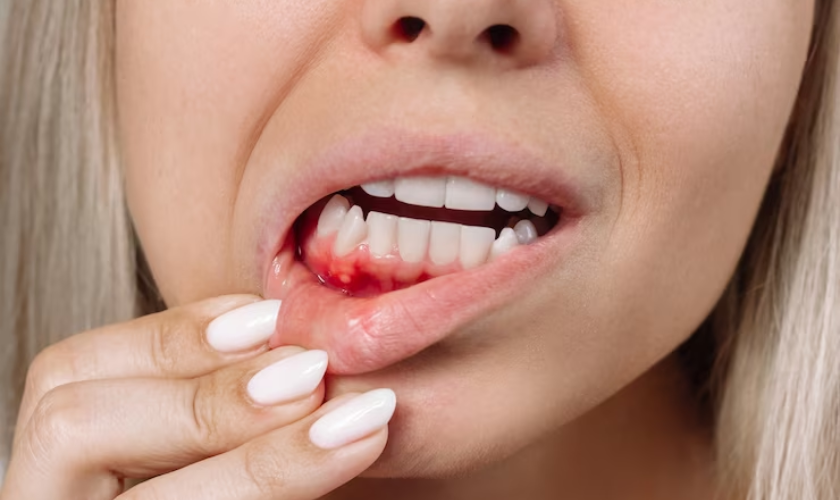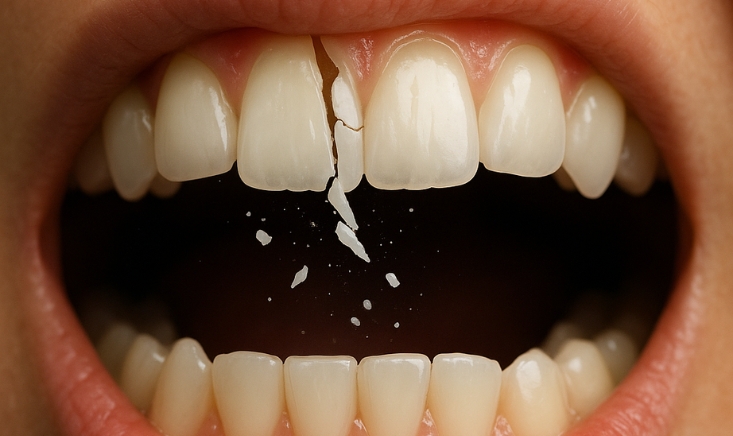Bleeding Gums Gone Rogue: When to Seek Emergency Dental Care

Bleeding gums are often a sign of underlying dental issues that shouldn’t be ignored. While occasional bleeding during brushing or flossing may not be a cause for concern, persistent or excessive bleeding can indicate a more serious problem. In this blog post, we’ll discuss the signs that your bleeding gums may need emergency dental care.
Causes of Bleeding Gums
Gum bleeding can occur by a variety of factors, ranging from minor to serious. Understanding the underlying causes can help you take appropriate steps to address the issue. Here are some common causes of bleeding gums:
Gingivitis: Gingivitis is the early stage of gum disease and is often characterized by red, swollen, and bleeding gums. Poor oral hygiene, plaque buildup, and bacteria are the primary culprits behind gingivitis.
Periodontitis: If left untreated, gingivitis can progress to periodontitis, a more severe form of gum disease. Periodontitis can cause the gums to pull away from the teeth, forming pockets that can become infected. This can lead to bone and tooth loss if not treated promptly.
Poor Oral Hygiene: Not brushing and flossing regularly can lead to plaque buildup, which can irritate the gums and cause them to bleed. Proper oral hygiene is essential for maintaining healthy gums and preventing bleeding.
Vitamin Deficiencies: Deficiencies in vitamins C and K can contribute to bleeding gums. Vitamin C is important for collagen production, which is essential for healthy gums. Vitamin K plays a role in blood clotting so that a deficiency can lead to increased bleeding.
Medications: Some medications, such as blood thinners and anticoagulants, can increase the risk of bleeding gums. If you’re taking any medications and experiencing bleeding gums, it’s important to discuss this with your healthcare provider.
Pregnancy Gingivitis: Hormonal changes during pregnancy can make the gums more susceptible to inflammation and bleeding. This condition, known as pregnancy gingivitis, usually resolves after childbirth.
Medical Conditions: Certain medical conditions, such as diabetes, leukemia, and bleeding disorders, can increase the risk of bleeding gums. It’s important to manage these conditions effectively to minimize oral health complications.
Smoking: Smoking can weaken the immune system and reduce blood flow to the gums, making them more susceptible to infection and bleeding.
Stress: Chronic stress can weaken the immune system and increase inflammation in the body, including the gums. Managing stress through relaxation techniques and lifestyle changes can help improve gum health.
Misaligned or Damaged Teeth: Teeth that are misaligned or damaged can irritate the gums and lead to bleeding. Proper dental treatment, such as braces or crowns, can help alleviate this issue.
Signs Your Bleeding Gums Need Immediate Attention
Excessive Bleeding
If your gums bleed profusely and the bleeding doesn’t stop after applying pressure for a few minutes, it’s time to seek emergency dental care. Excessive bleeding can be a sign of gum disease, trauma, or a more serious underlying condition that requires immediate attention from an emergency dentist.
Swollen Gums
Swollen gums that are tender to the touch can indicate an infection or inflammation. If your gums are swollen and bleeding, it’s important to see an emergency dentist as soon as possible to prevent further complications. Ignoring swollen gums can lead to the development of an abscess, which can be extremely painful and may require immediate treatment.
Pain or Discomfort
Bleeding gums accompanied by pain or discomfort, especially when chewing or brushing, can be a sign of advanced gum disease, an abscess, or other dental issues. These conditions require prompt attention from an emergency dentist to prevent the spread of infection and alleviate pain.
Receding Gums
If your gums are receding or pulling away from your teeth, it can be a sign of gum disease or aggressive brushing. Receding gums can expose the roots of your teeth, leading to sensitivity and an increased risk of infection. A dentist can assess the cause of your receding gums and recommend appropriate treatment to prevent further damage.
Persistent Bad Breath
Chronic bad breath, also known as halitosis, can be a sign of gum disease or an underlying dental problem. If your bad breath persists despite regular brushing and flossing, it’s important to see an emergency dentist for a thorough evaluation. Persistent bad breath can indicate the presence of bacteria in your mouth, which can lead to gum disease if left untreated.
Bleeding gums should not be ignored, as they can be a sign of underlying dental issues that require prompt treatment. If you experience any of the above signs, it’s important to seek emergency dental care to prevent further complications. Remember, early detection and treatment are key to maintaining good oral health. If you’re experiencing bleeding gums, don’t hesitate to contact your dentist for a thorough evaluation and appropriate treatment. Your oral health is too important to ignore.


